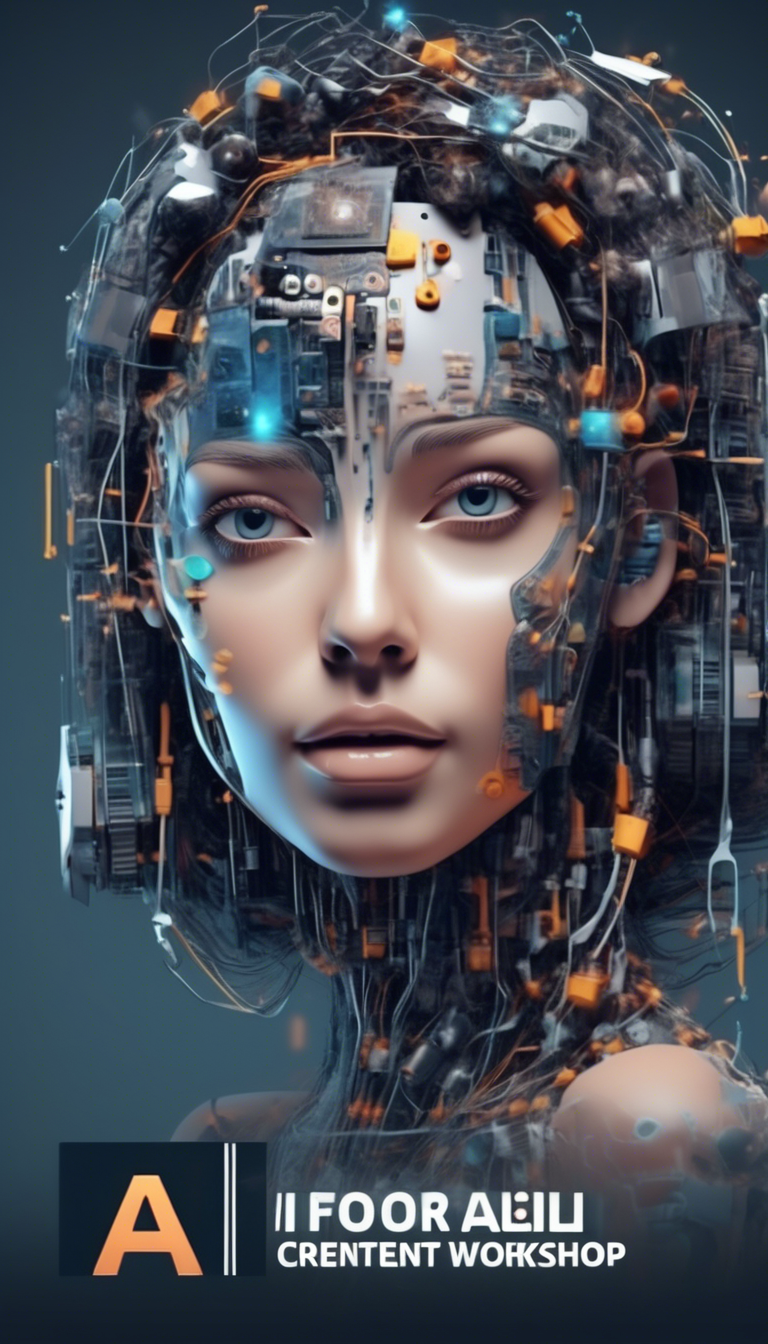Best Practices for Designing an AI for Content Creation Workshop
As the demand for quality content continues to rise, many organizations are exploring the potential of artificial intelligence in their content creation processes. Designing an effective workshop to teach participants how to leverage AI tools can lead to significant improvements in productivity and creativity. Here are several best practices that can help ensure your AI for content creation workshop is engaging and informative.
Understand Your Audience
Before diving into the specifics of the workshop, it’s crucial to understand who your audience is. Are they writers, marketers, business owners, or educators? This knowledge will help tailor the content to meet their needs. Consider the following:
- Experience Level: Gauge their familiarity with AI and content creation tools.
- Expectations: Learn what participants hope to gain from the workshop.
- Challenges: Identify common pain points they face in content creation.
Select the Right Tools
The workshop should focus on a few powerful AI tools rather than attempting to cover every available option. This allows participants to gain hands-on experience and a deeper understanding of how to use each tool effectively. Consider including:
- Content Generation Tools: Tools like OpenAI’s ChatGPT or Jasper can help automate the writing process.
- SEO Optimization Tools: Software such as Surfer SEO or Clearscope can improve content visibility.
- Image and Video Creation Tools: Platforms like Canva or Lumen5 assist in creating engaging visuals.
Incorporate Hands-On Learning
Effective learning often occurs through practice. Incorporate hands-on activities where attendees can use AI tools to create content. This could include:
- Real-Life Scenarios: Pose challenges that mimic their everyday content creation tasks.
- Group Exercises: Encourage collaboration, allowing participants to brainstorm and refine their work together.
- Feedback Sessions: Create opportunities for peer reviews, where participants can critique and learn from each other’s use of AI tools.
Emphasize Ethical Considerations
While embracing AI’s capabilities, it’s essential to address ethical considerations. Discuss the importance of:
- Copyright Issues: Educate participants about the legal implications of AI-generated content.
- Transparency: Encourage users to disclose if a piece of content has been generated or heavily edited by AI.
- Bias and Accuracy: Explain how AI tools can often reflect the biases present in their training data and the importance of human oversight.
Provide Resources for Continuous Learning
To help participants continue their education beyond the workshop, offer valuable resources. This could include:
- Documentation: Share user manuals or links to tool websites for deeper insights.
- Online Communities: Direct them to forums or groups where they can engage with other AI users.
- Follow-Up Sessions: Consider arranging follow-up webinars to address common challenges and share new insights in the AI landscape.
Gather Feedback for Improvement
After the workshop, collecting feedback is crucial. This can help refine future workshops and enhance the learning experience. Use tools like surveys or informal discussions to gauge participants’ thoughts on:
- Content Relevance: Was the workshop pertinent to their needs?
- Instruction Quality: Were the facilitators clear and engaging?
- Overall Experience: What were their highlights and low points?
These best practices into an AI for content creation workshop can make it a valuable experience for all involved. Not only will participants walk away with a better understanding of AI tools, but they will also be empowered to integrate these advancements into their content creation efforts effectively.
As the landscape of content creation continues to evolve with AI, equipping individuals with the right knowledge and skills will help them stay ahead in this increasingly competitive environment. By fostering a learning atmosphere that prioritizes hands-on experience, ethical practices, and continuous growth, your workshop can become a standout opportunity for professionals seeking to elevate their content strategies.
The Impact of AI on Creative Writing and Content Strategy
The rise of artificial intelligence in the realm of creative writing has reshaped how content strategies are developed and executed. Today, writers and marketers alike find themselves harnessing AI technologies to amplify their creativity and efficiency. As we delve into this transformative impact, it becomes clear that AI is not merely a tool but a catalyst for innovation.
One of the first noticeable effects of AI on creative writing is the acceleration of content generation. Writers who previously spent hours crafting complex narratives can now use AI-driven tools to generate drafts at remarkable speed. These tools analyze existing content, understand stylistic preferences, and suggest relevant topics, thus streamlining the writing process. The ability to quickly produce a variety of content types—from blog posts to social media updates—dramatically enhances productivity.
Moreover, AI’s data-driven insights enable writers to fine-tune their content strategies. By analyzing audience behavior, engagement metrics, and trending topics, AI can provide recommendations that align closely with the desires of target audiences. This ability ensures that the content resonates on a deeper level, increasing the likelihood of engagement and return on investment. Writers can craft messages that not only captivate but also convert.
The integration of natural language processing (NLP) further elevates AI’s influence on creative writing. NLP technologies can understand and produce human language with increasing accuracy. This allows for the creation of content that feels authentic and engaging to readers. For example, AI can assist in writing persuasive copy for marketing campaigns or tailoring articles to different reading levels. This versatility means that content can be customized, whether it’s a technical document or a casual blog post.
However, despite these advantages, the use of AI in content creation raises important questions about authenticity and originality. Some writers worry that reliance on AI could stifle their creative voices. There’s the risk of producing homogenous content that lacks unique perspectives. The key is to view AI as a supportive partner rather than a replacement for human creativity. Writers should harness AI’s capability to spark ideas and assist with mundane tasks while infusing their work with originality and personal flair.
As the landscape of content creation evolves, it’s vital to remain mindful of ethical considerations as well. With AI, there comes the potential for misuse, such as generating misleading information or fabricating sources. Thus, transparency is essential. Writers must ensure that their audiences are aware of the role AI plays in the content they consume. Creating an artificial boundary between machine-generated content and human creativity can build trust and enhance the reading experience.
To optimize the benefits of AI in creative writing, marketers and content creators should consider the following strategies:
- Leverage AI Tools Wisely: Use AI for brainstorming and drafting but take the reins during the editing and refining process to preserve authenticity.
- Embrace Collaboration: Blend human insights with AI-generated suggestions. This hybrid approach often yields the best results.
- Stay Informed: Keep up with the latest advancements in AI technology to better understand how it can work for you, not against you.
- Analyze Results: Continuously monitor audience reactions to AI-assisted content. Use this data to iterate and improve future strategies.
The impact of AI on creative writing and content strategy is significant and multifaceted. As AI continues to advance, it will inevitably play a more prominent role in shaping the future of content. Writers and marketers who embrace these changes will likely find themselves at the forefront of innovation, crafting compelling narratives that both engage audiences and enhance their brands.
In the end, AI is here to stay, and how we choose to interact with it will define the future of creative expression. Rather than viewing these technologies as threats, embracing them as complements to our creativity can lead to groundbreaking opportunities. The journey forward lies in harnessing the strengths of both AI and human creativity, resulting in a vibrant landscape of content that captivates and inspires.
Conclusion
As we navigate the evolving landscape of content creation, the significance of a well-structured workshop centered around AI becomes increasingly apparent. Designing an effective AI for content creation workshop involves understanding best practices that not only facilitate learning but also empower participants to harness technology in creative ways.
When crafting such a workshop, it’s imperative to begin with a clear outline of objectives. Participants should leave with not just theoretical knowledge but practical skills they can apply immediately. hands-on exercises can make the content more relatable and facilitate a deeper understanding. Allow time for interactive discussions and Q&A sessions; this encourages participants to share experiences and challenges, fostering a collaborative environment. By integrating real-world examples of AI applications in content creation, you can illustrate concepts more vividly and help attendees visualize AI’s impact on their own strategies.
Moreover, infusing diversity into the workshop content is crucial. Tailoring sessions to accommodate varying expertise levels means all attendees can engage at their pace. Beginners might benefit from simplified explanations, while seasoned creators could need advanced techniques for leveraging AI’s capabilities. It’s also beneficial to integrate a variety of perspectives—bringing in experts from different fields can provide a richer understanding of how AI can serve different niche markets in content creation.
The impact of AI on creative writing and content strategy cannot be overstated. AI has transformed how we generate ideas, structure narratives, and even refine final outputs. It can synthesize vast amounts of information rapidly, helping writers discover trends and insights they might otherwise overlook. Content strategists can use AI to analyze audience behavior and predict future content performances, enabling a data-driven approach to message delivery that’s both timely and relevant.
Importantly, however, is the necessity of blending human creativity with AI’s analytical powers. While AI tools can assist in brainstorming, drafting, and editing, they cannot replicate the emotional core that human-centered stories often require. The best AI-enhanced content retains a distinctive voice that resonates with audiences. This is where workshops come into play, emphasizing the importance of narrative and emotional intelligence in conjunction with technology. Equipping participants with the knowledge of how to integrate AI effectively exemplifies the workshop’s balance of technological proficiency and creative essence.
Another key point to address in an AI for content creation workshop is the ethical considerations surrounding AI usage. As AI-generated content becomes increasingly prevalent, questions about originality, authenticity, and ownership arise. Writers and strategists need to understand these aspects to navigate potential pitfalls professionally. Workshops can serve as a space to discuss the ethical landscape, guiding creators on responsible AI implementation that respects intellectual property and fosters originality.
By investigating the role of AI in content workflows, participants can innovate their approach and rethink old paradigms. The ability of AI to personalize content for different audience segments is a game changer, leading to higher engagement rates. Understanding this aspect can empower writers and marketers to strategize their efforts more efficiently, ensuring that their messages resonate deeply with specific target groups.
Furthermore, the feedback loop created through AI applications can significantly enhance content quality. With the analysis of audience interaction data, creators can adjust their stories and strategies in real time. This dynamic approach is crucial in today’s fast-paced digital landscape, where attention spans are short and audience preferences are constantly shifting. Workshops focusing on this adaptability can equip participants to respond quickly to feedback, enhancing their work’s relevance and impact.
Wrapping it all together, AI for content creation workshops are an invaluable resource for writers, marketers, and content strategists alike. They offer not just the skills to use AI effectively, but also the guidance to maintain the essential human touch that keeps content engaging. By understanding best practices for designing these workshops and grasping the profound impact of AI on creative writing and content strategy, participants can emerge better prepared to tackle an increasingly complex digital environment. The journey into AI-enhanced content creation is one filled with possibilities, and workshops can illuminate the path forward for all who are eager to explore this new frontier. Through thoughtful design, interactive learning, and a focus on ethical considerations, these workshops can shape the future of content creation, driving innovation and fostering creativity in ways we are just beginning to understand.


